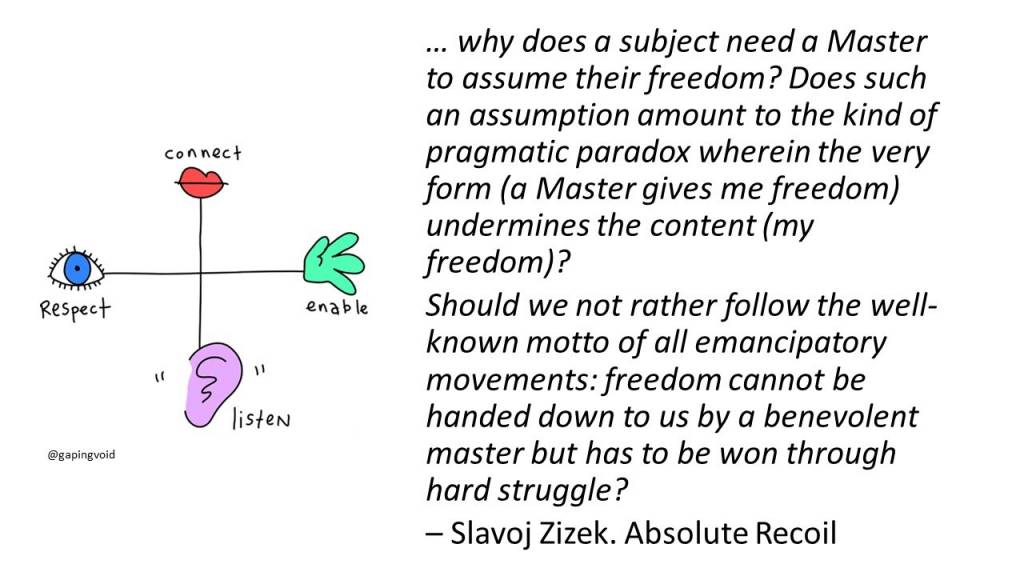
“… why does a subject need a Master to assume their freedom? Does such an assumption amount to the kind of pragmatic paradox wherein the very form (a Master gives me freedom) undermines the content (my freedom)? Should we not rather follow the well-known motto of all emancipatory movements: freedom cannot be handed down to us by a benevolent master but has to be won through hard struggle?” – Slavoj Zizek. Absolute Recoil
The Zizek quote above is meant for you to stop waiting for someone to empower you or let you take control. Leadership is about controlling the areas of influence you have and making progress in separating yourself from others and being someone others find useful to make progress.
Leadership is contextual-interaction, and you can understand context when you learn skills and enhance your capacity to work within VUCA environments. We often hear leadership as a passive process – you attend class, earn a certificate, or are given the manager title.
Leadership is earned and won through struggle, a struggle for others (and yourself) to see you as worthy of following and competent enough to help them solve their problems; this takes work, ego, more work, and learning.
6 Truths About Leadership
- Leadership is contextual = we need to understand the context you are being asked to exercise leadership accountability within and what clues or tools will allow you to best lead.
- My solution will not work for you =. Simultaneously, many people have a close enough answer to leadership challenges; you need to frame the problem within your context and determine what capacity, skills, and resources you have (or know) can make progress.
- The current environment is enough = where you are and what you know right now is sufficient. When challenged to make a leadership decision, the more you understand the current environment (the Gemba) and ask people to show you what is happening, the better.
- When something works, take notice = leadership creates awareness of the minute details and how those things happen. When something happens, the team would like to have happened more, take note, figure out what happened, and test an experiment to repeat what worked.
- The team will grow or wither based on the organizational system. Your capacity = your accountability as a leader, adds value to the team’s decision-making and problem-solving, and supplies resources to complete the work.
- You will be wrong about 50% of the time. When you are wrong, admit it = nobody believes leaders need to be superheroes. When you are wrong, make a bad decision, offend somebody, fail to understand the environment, tell the team, apologize and bring the team together to develop the next small experiment.
What happens in the problems absence is an area of what’s working that can be amplified, that is your accountability as a leader.

